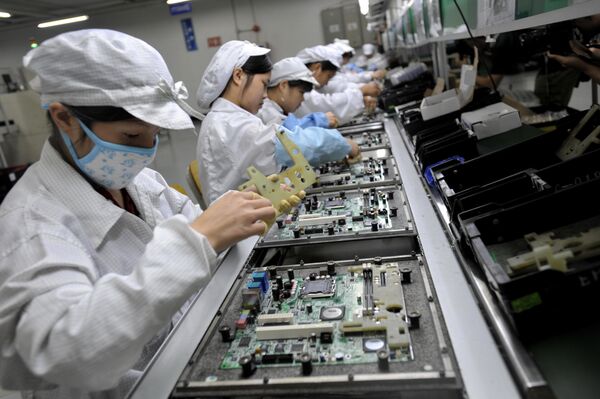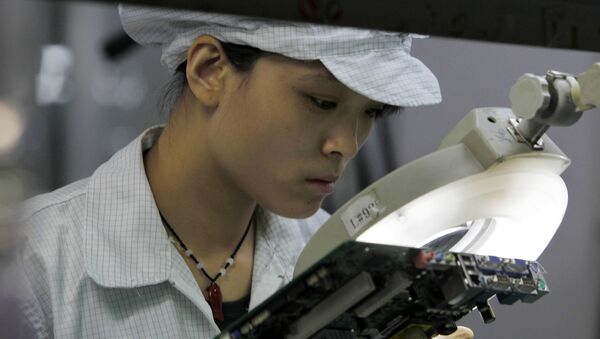Apple Inc. and its manufacturing partner Foxconn have violated a Chinese labour law by hiring more temporary workers to assemble iPhones than allowed by the law, according to a report by China Labour Watch (CLW).
The New York City-based Chinese watchdog claimed that more than half of the workforce employed at the largest iPhone factory in Zhengzhou last month were so-called “dispatch” workers, including student interns.
The CLW report found that temporary staff made up about 50 percent of the Zhengzhou plant’s workforce in August, while the Chinese labour law allows a maximum of 10 percent.
The watchdog claimed that unlike permanent employees, temporary workers don’t receive a full array of benefits, including unemployment insurance, pension contributions, paid sick leave and vacation as well as medical benefits.
The CLW claimed that its findings on working conditions at Foxconn’s Zhengzhou factory “highlights several issues which are in violation of Apple’s own code of conduct”.
“Apple has the responsibility and capacity to make fundamental improvements to the working conditions along its supply chain, however, Apple is now transferring costs from the trade war through their suppliers to workers and profiting from the exploitation of Chinese workers,” the CLW said, in an apparent nod to the ongoing China-US trade spat.
Apple Rejects Labour Law Violations at Zhengzhou Plant
Apple has rejected most of the CLW claims as false, confirming that “all workers are being compensated appropriately, including any overtime wages and bonuses” and that “all overtime work was voluntary and there was no evidence of forced labour.”
At the same time, Apple admitted to conducting a probe which found the “percentage of dispatch workers exceeded our standards.” The corporation confirmed that it is “working closely with Foxconn to resolve this issue” which Apple pledged will be followed by its cooperating with suppliers to “take immediate corrective action.”
Foxconn acknowledged admitted that “the use of dispatch workers and the number of hours of overtime work carried out by employees, which we have confirmed was always voluntary, was not consistent with company guidelines”.

The CLW report was released after reports that despite comments by CEO Tim Cook that his company was not a target in the expanding US-China trade spat, Apple is considering moving between 15 and 30 percent of its iPhone production out of China in a bid to restructure its supply chains.
Late last year, Bloomberg reported that Foxconn, which makes various Apple products such as the iPhone, iPad and iPod, plans to reduce its budget by billions of dollars and lay off thousands of staff due to the ongoing US-China trade war and tech slowdown.
US-China Tariff Spat Worsens
The US-China trade spat escalated last month, when Washington announced it would raise tariffs on $250 billion worth of Chinese goods from 25 to 30 percent from 1 October, and that US duties would be raised from 10 percent to 15 percent on another $300 billion worth of Chinese goods starting on 1 September.
This came in response to Beijing’s previous announcement that tariffs ranging from 5 to 10 percent would be slapped on $75 billion worth of US goods, with some taking effect on 1 September and others on 15 December.
The US and China have been embroiled in a tit-for-tat trade spat since mid-2018, when the Trump administration slapped a 25 percent tariffs on $50 billion worth of Chinese goods. Since then, the two countries have hit one another with several rounds of back-and-forth tariffs.




